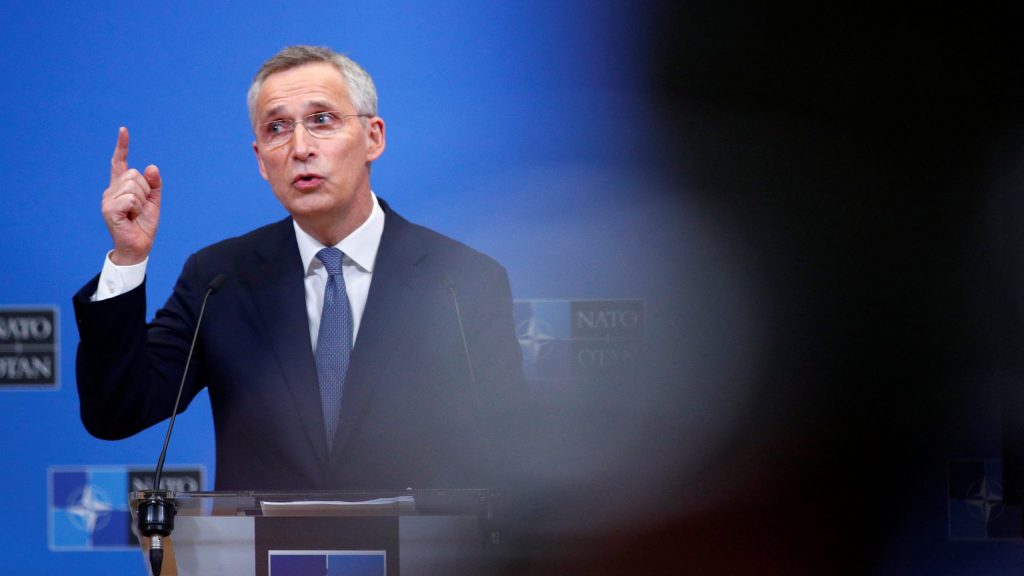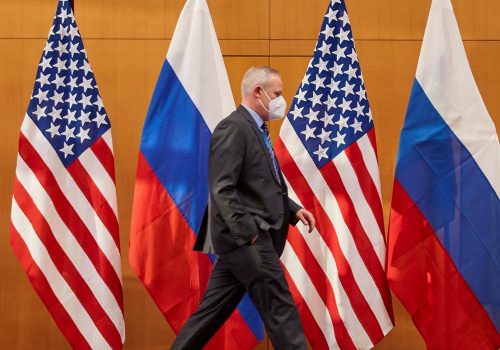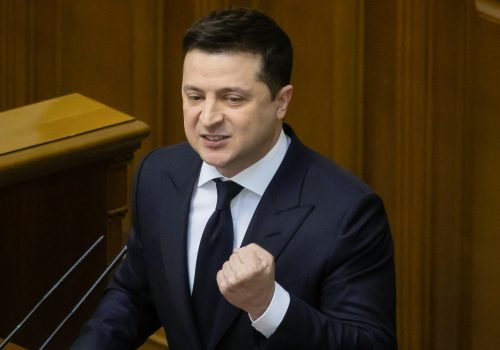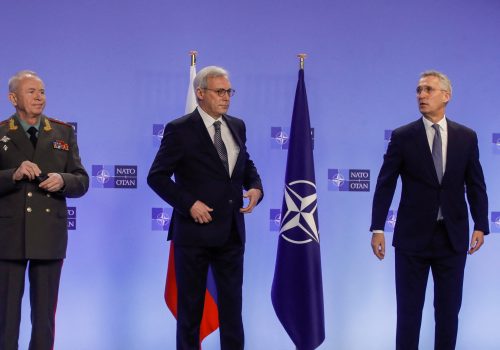As the crisis over Ukraine intensifies, key stakeholders are looking to Brussels for signs of Western resolve. At the NATO-Russia Council meeting on January 12, the Alliance delivered: In a vivid expression of solidarity, it categorically (and unanimously) rejected Russian demands to forgo future expansion or withdraw forces from member countries.
Yet as the crisis evolves, decisions about how to support Ukraine will become more difficult, and there’s a limit to how unified NATO can be. While the West might agree on introducing tough new economic sanctions and reinforcing the Alliance’s eastern flank, boosting Kyiv’s military capacity—by supporting an insurgency, for instance, or sending anti-tank weapons—will be impossible to achieve by consensus and is much more likely to come from individual members than under NATO auspices.
This shouldn’t be surprising. Consider Russia’s annexation of Crimea in 2014 and its ongoing support for separatists in Ukraine’s Donbas region: NATO actions in support of Kyiv have been more political than operational, leaving it to individual allies to provide munitions, equipment, and training to Ukrainian forces. And despite a recurrent pledge that Ukraine would one day be welcome to join the Alliance, as well as the sympathy expressed by allies for Ukraine’s plight, there’s been precious little progress on this front.
NATO is primarily concerned about defending its members from Russian aggression—which it is also wary of provoking by supporting the Ukrainian military.
Yet despite its lack of meaningful military support for Ukraine, the crisis has been the animating issue on the Alliance’s agenda since 2014. Russia’s attacks on Ukraine and its support for separatists have driven major NATO initiatives on readiness, defense planning, force posture, intelligence, and technology development, with an eye toward beefing up the Alliance’s northern and eastern flanks and deterring Russia in both the conventional and sub-threshold realms. As an institution established to safeguard Europe, it has successfully geared itself to deter the type of destabilizing Russian belligerence currently on display.
Critics of the alliance (and even some supporters) have interpreted NATO’s unwillingness to militarily support Ukraine—especially during the most significant challenge to the European security order since the Cold War—as an indicator of its declining relevance, timidity, or its divisions. But that overstates the importance of political consensus to NATO’s value and understates its role as an effective and flexible defensive alliance. This is a role with potentially critical benefits for Ukraine.
First, it sets too high a bar for an alliance of thirty members with aligned, but distinct, priorities. Unanimity on every issue is impossible, let alone one as complex as military support to Ukraine. Debate and disagreement, as it should be for any democratic institution, are built-in features of NATO—not bugs. In reality, it’s astounding how often NATO does reach consensus about issues big and small, creating an unrealistic expectation that it always will. The opposite of consensus is not failure. Suggesting otherwise turns any debate that doesn’t end harmoniously into an indictment of NATO, playing straight into Russian propaganda.
Second, a belief that NATO’s value is tied primarily to achieving consensus on every issue misses the more mundane (and important) ways it supports its allies and partners. Its affinity for process—particularly its ability to build a common situational understanding among its members—is an invaluable tool. Habits of consultation and information sharing, buttressed by deep cooperation on operations, intelligence sharing, defense planning, and interoperability, create the foundation upon which any consensus is to be built. Even in the absence of that agreement, the ability to collectively define threats and jointly train to confront them is immensely valuable in its own right.
Third, these habits of cooperation give NATO members the flexibility to act outside of the Alliance’s frameworks. While NATO does much by consensus—such as its missions in the Baltic states—the skills it helps members develop is central to enabling them to form separate coalitions for action. This happened recently with ample success in taking on the Islamic State. Such flexibility should be a point in NATO’s favor, not evidence of its ineptitude.
In the case of military support for Ukraine, policymakers will find more attractive alternatives for dealing with Moscow’s aggression outside of the auspices of the Alliance. Up to and including its recent dialogue with Russia, it has taken a host of consensus actions to support Ukraine—from condemning Kremlin aggression and standing up for Kyiv politically to reaffirming its open-door policy with an expectation that Ukraine will eventually become a member. It might even share intelligence and develop training and advisory programs for the Ukrainian military.
And while it won’t find a consensus to fight, it could provide the foundation for certain allies to support Ukrainian forces in ways consistent with their national priorities outside of NATO. In that case, NATO’s enabling value to its members in complicating Putin’s cost-benefit assessment should be applauded.
Last week’s NATO-Russia Council meeting showcased an Alliance working in lockstep and finding political consensus in responding to preposterous Russian demands. NATO should always strive for this degree of consensus. But if and when this crisis intensifies, and Putin advances further into Ukraine, expectations for NATO assistance will be raised, decisions about how to respond will become more difficult, and consensus will be more elusive.
Despite the rhetoric we might hear in response, this is not evidence of NATO’s ineffectiveness—but rather a reflection of how democratic institutions function. And even absent consensus, NATO can still contribute invaluably to Ukraine’s sovereignty.
Christopher Skaluba is the director of the Transatlantic Security Initiative in the Atlantic Council’s Scowcroft Center for Strategy and Security. He previously served as principal director for European and NATO policy in the Office of the Secretary of Defense.
Conor Rodihan is the associate director in the Scowcroft Center for Strategy and Security’s Transatlantic Security Initiative.
Further reading
Tue, Jan 11, 2022
What will Putin do? An expert guide to this week’s high-wire diplomacy with Russia
New Atlanticist By
As the tensions ratchet up, our experts parse through the details, signals, and developments to distill what this moment means for Europe and beyond.
Fri, Jan 14, 2022
Top Ukrainian official: Get the presidents of Ukraine, Russia, and the US together
New Atlanticist By Dan Peleschuk
Andriy Yermak, chief of staff to Ukraine President Volodymyr Zelenskyy, appeared at an Atlantic Council Front Page event Friday to discuss his country's security at a perilous moment.
Mon, Jan 17, 2022
If the West sticks together, it can find a way forward with Russia
New Atlanticist By Daniel Fried
The US and Europe need to resist the temptation to respond to threats with concessions, and maintain a willingness to discuss European security in a way that benefits all, not just Moscow.
Image: NATO Secretary General Jens Stoltenberg speaks during a news conference at the Alliance's headquarters in Brussels, Belgium January 12, 2022. Photo by Johanna Geron/REUTERS



